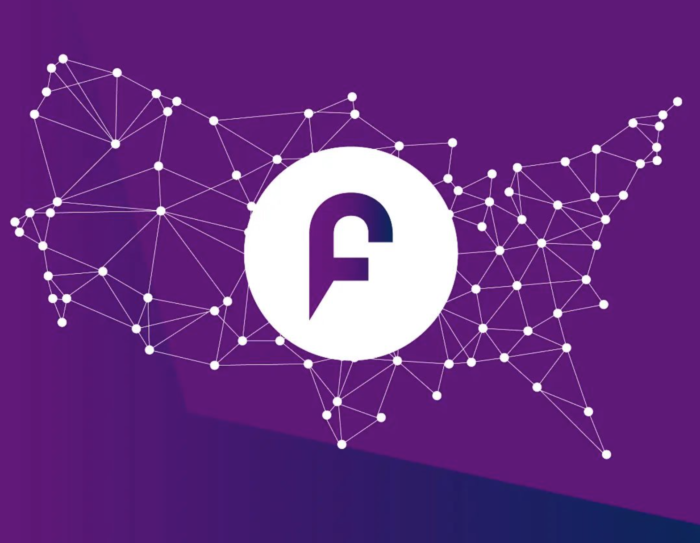
Last month, Factchequeado launched as a way to address misinformation in Latino and Spanish-speaking communities in the United States.
Founded by Laura Zommer of Chequeado in Argentina and Clara Jiménez Cruz of Maldita.es in Spain (both are fact-checking organizations), The idea for the venture emerged when Jiménez started noticing that misinformation in Spanish targeting U.S. Latinos was also reaching Spanish speakers in Spain. She figured that the misinformation must have made its way to Argentina too, so she reached out to Zommer.
“We’ve been seeing in Spanish-speaking countries in the past five to 10 years that misinformation travels in a different way and very often has specific topics targeting specific communities,” Jiménez said. “So at Maldita, we thought maybe all these things that we’ve learned over the years can be applicable in the U.S. and we can launch [a] fact-checking project there for Spanish speaking communities that can also benefit our own communities in our own regions. Because we see that this information has no borders, this misinformation fabricated in the U.S. comes to Spain and to Latin America, and misinformation fabricated in Spain and Latin America is probably reaching the U.S. as well.”
Jiménez and Zommer also pointed out that Big Tech companies focus their efforts and resources on combatting misinformation in English, even though misinformation on social platforms is a problem in many languages, including Spanish. That means smaller, sometimes non-profit fact-checking outlets like Maldita.es and Chequeado shoulder the responsibility of fact-checking in Spanish.
Zommer noted that when the Plandemic video came out and went viral, Facebook linked in English to the World Health Organization’s website. But with the Spanish version of the video, Facebook linked to a group called “Médicos por la verdad” (Doctors for Truth), which disseminates misinformation about issues related to the coronavirus.
“One of our approaches here is thinking if we manage [to get] platforms and the companies to put attention into Spanish-language misinformation in the U.S., that is going to benefit our regions and our languages in the long term,” Jiménez said.
Factchequeado, a team of five, is a service journalism project and its model is based on collaboration. It partners with English- and Spanish-language publications in the U.S. that want to republish its fact-checks and explainers. In return, Factchequeado asks that the organizations help them reach broader audiences and learn more about their news and information consumption habits by sharing its WhatsApp chatbot number. So far, Factchequeado’s partners are Conecta Arizona, Conexión Migrante, Documented, El Detector, Enlace Latino NC, FactCheck.org, La Esquina, MediaWise, PolitiFact, and Telemundo’s Verifica.
Factchequeado determines what to debunk with two factors: virality and level of danger. Its team won’t cover something that only one person forwarded them on WhatsApp if the reach of the content in question is low because doing so could lead to amplification. It will also focus on misinformation that surfaces in times of crisis, social movements, and elections. Since its launch, Factchequeado has covered cryptocurrency scams and how to protect yourself from them, fake polls about Mexican president Andrés Manuel López Obrador, the Amber Heard and Johnny Depp trial, and what will happen to abortion access if the U.S. Supreme Court overturns Roe v. Wade.
Spanish speakers in the U.S., of course, aren’t a monolith. Jiménez and Zommer know that different communities in different regions have all kinds of interests and consumption habits, and that WhatsApp is commonly used among Spanish speakers around the world. In Factchequeado’s pilot year, they want to quantify that information more and understand where certain narratives come from, how they get to certain communities, and what the takeaways from those findings are in order to better combat misinformation in Spanish. Then they can show how tech companies answer misinformation and disinformation in Spanish differently than they do in English, Zommer said.
But to get all that information, building relationships with news consumers and social media users is key.
“One of the approaches that Maldita and Chequeado have taken throughout their time is the idea of building trust by doing the public a service,” Jiménez said. “What we do on a daily basis is listen to the audiences, understand what their needs are and try to answer them. Once they trust us, we can start [giving them] other kinds of information that is not necessarily the one that they [came to us for].”
Factchequeado plans to experiment with different formats to reach users as well, something that Chequeado and Maldita already do. Many of Factchequeado’s stories start with, “if you only have a few minutes, read this” and a few bullets that summarize the piece. Most people likely don’t have or want to spend the time reading 2,000 word articles, but they do have 20 seconds to understand that something is false. They’ll test out shorter pieces, images, short videos and audio files to see what what resonates most with its users. Its tone gives more “friend telling you something at the bar” vibes instead of “journalist trying to explain the world at you,” Jiménez said.
“We as journalists often [face] pieces of misinformation that we might not think are super important or that they’re going to make us win a Pulitzer,” Jiménez said. “But they’re the ones that build trust within communities because you answer the questions that they have and afterwards, they will stay for the rest.”